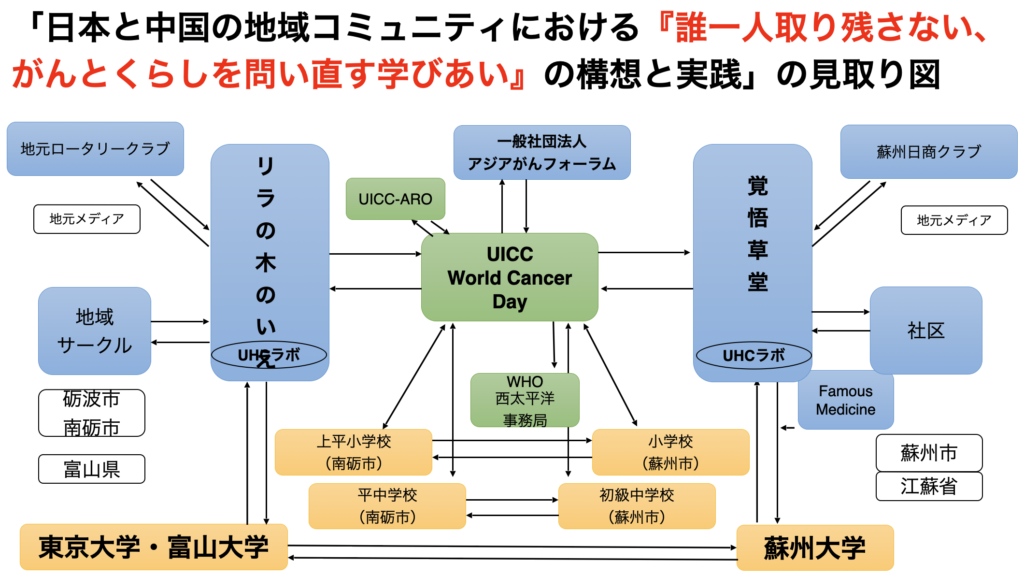What is the aim of this project?
In both Japan and China, the number of people living with cancer, which is no longer a deadly disease due to advances in treatment technology, is rapidly increasing in local communities outside hospitals. However, we are still not prepared for this situation, and patients and their families face many difficulties.
In order to achieve universal health coverage for cancer in Asia, we need to create a society where people can openly talk about cancer as a disease that can happen to anyone, and where local communities can support each other.
Therefore, this project aims to build a foundation for international cooperation in the process of mutual learning by conducting cancer education in schools, workplaces and communities in two regions of Japan (Tonami City and Nanto City in Toyama Prefecture) and China (Suzhou City in Jiangsu Province). We aim to mutually incorporate the advantages of Japan, which is ahead of other countries in cancer education, and China, which is ahead of other countries in the use of ICT technology and data, and to develop educational programs that are adapted to the context of the local communities in Japan and China.
Although the social environment and healthcare systems surrounding cancer care are very different, there are many issues with the same structure, such as low cancer screening rates. In the larger context of East Asia, the aim is for Japan and China, which have different social environments, to learn from each other, to be aware of outside perspectives, and to be able to recognize deep-rooted cultural and social issues that extend beyond the medical system.


